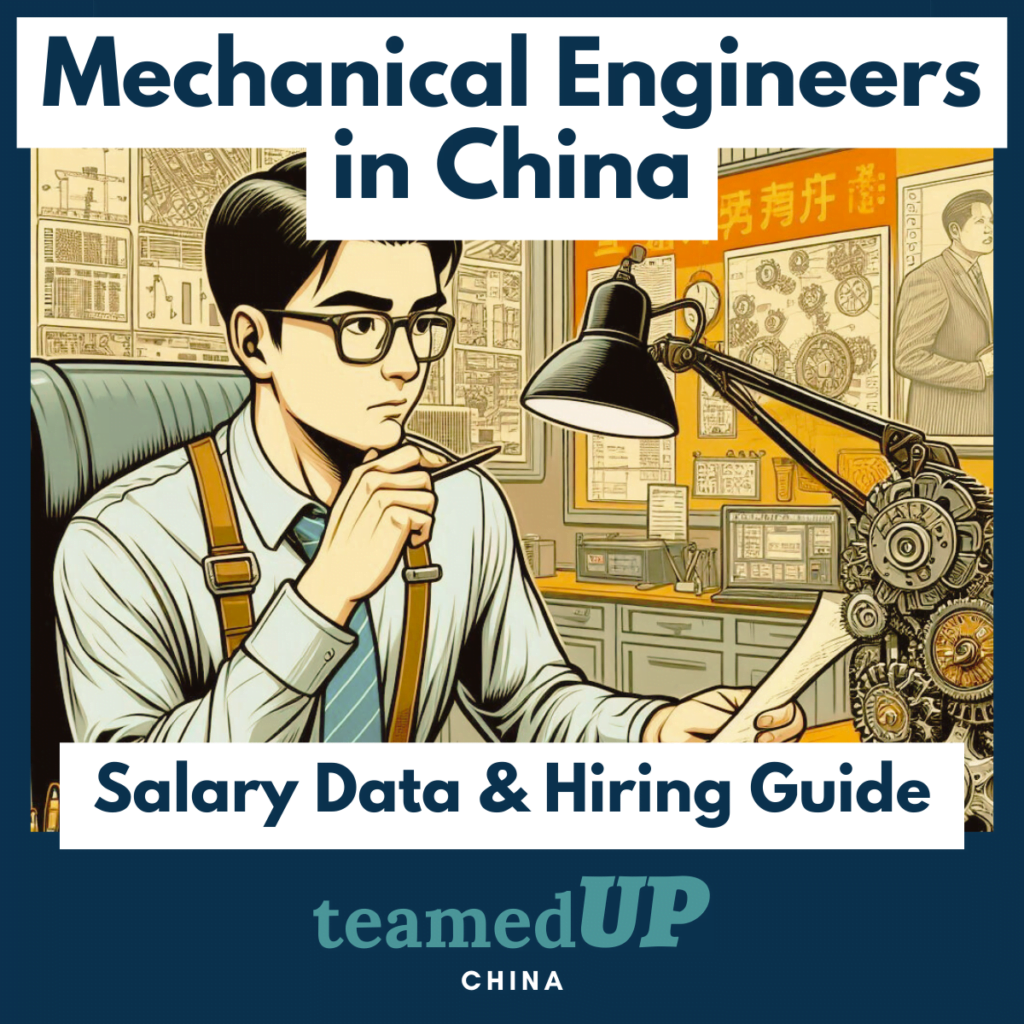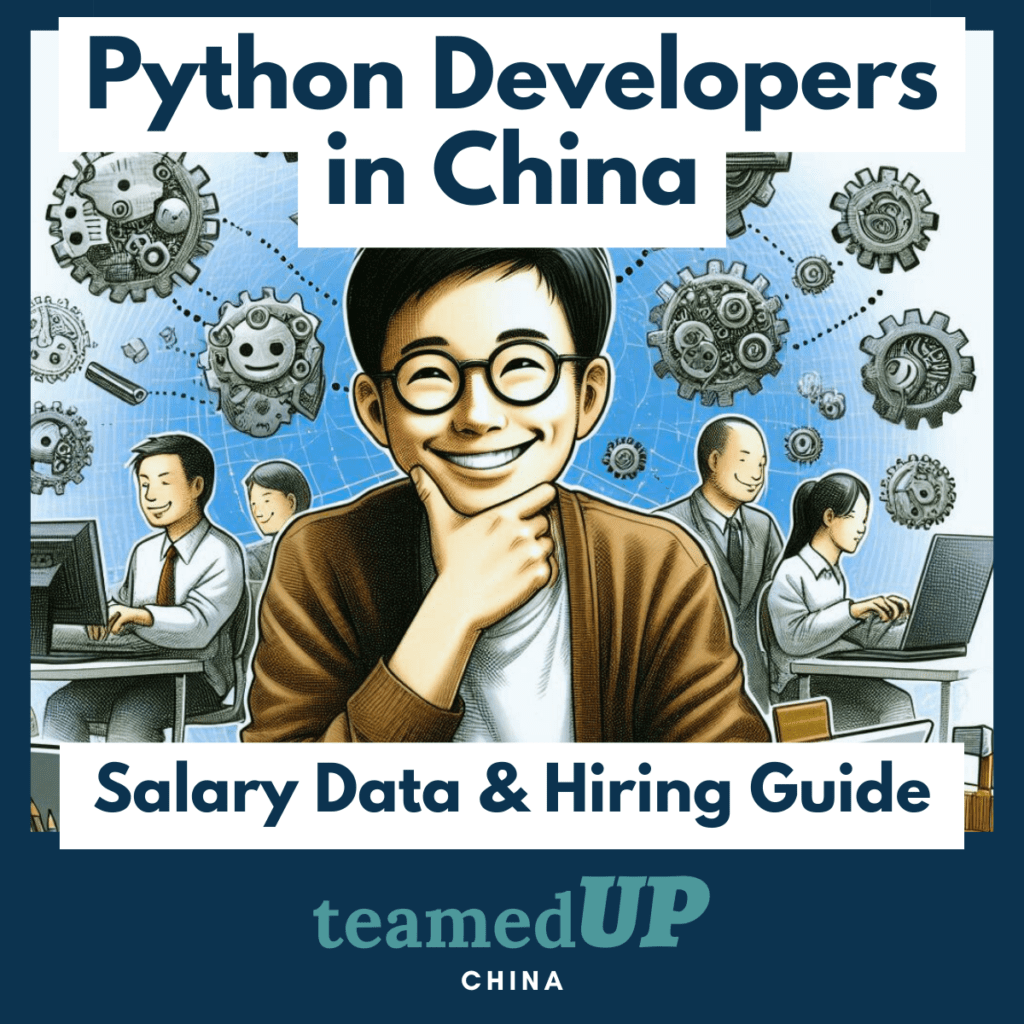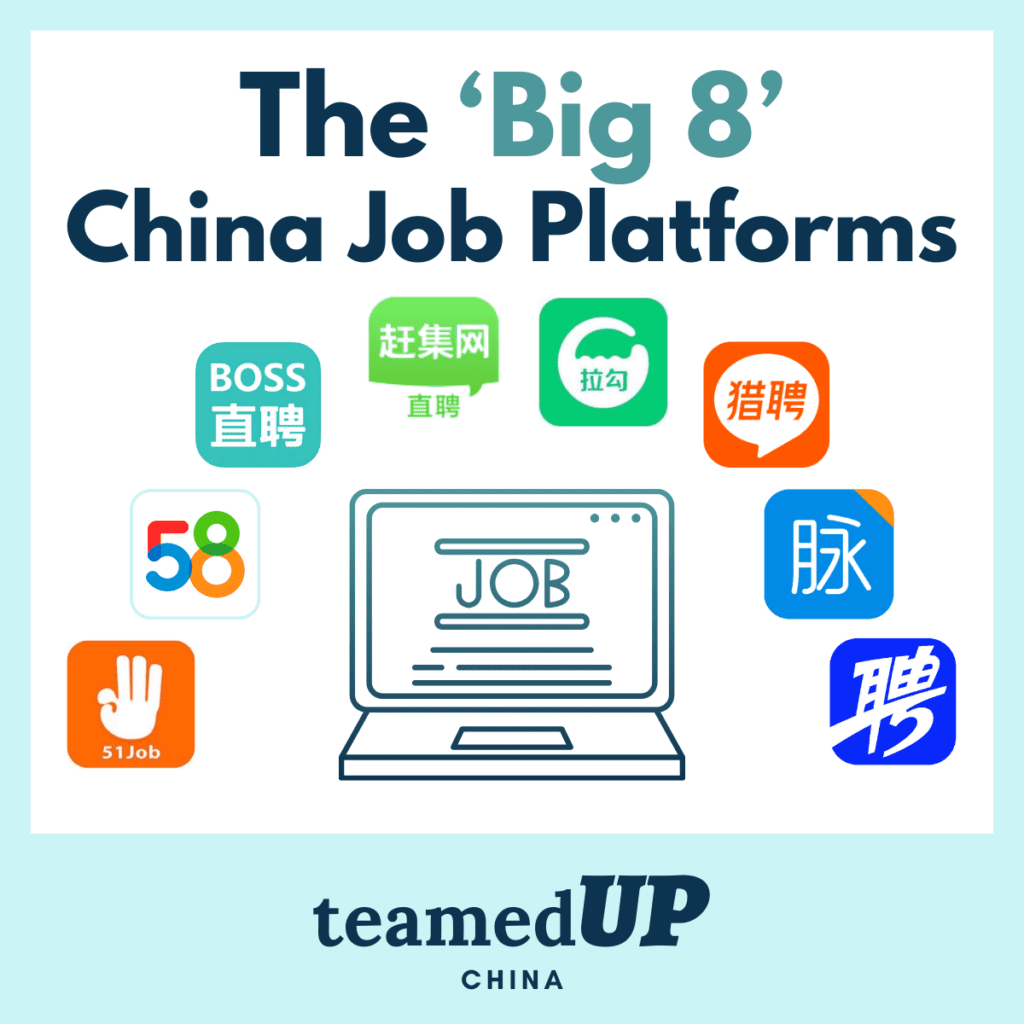Mechanical Engineers in China: Salary Data and Hiring Guide
Hiring in China? We can help. Post open roles across China’s top job sites, classifieds, and networking platforms — lower hiring costs by over 80%. Edit Template Mechanical Engineers in China Average Salary Nationwide, July 2024 Average Salary: ¥13,312 per month Median Salary: ¥14,834 per month Job Data Points: 460,996 Mechanical Engineers in China: Salary Overview The average salary for Algorithm Engineers in China is ¥13,312 per month, based on a sample of 460,996 positions. This data, updated in July 2024, provides insights into the salary landscape for Hardware Engineers across various experience levels and cities in China. Average Monthly Salary: ¥13,312 Median Monthly Salary: ¥14,834 Salary Range: ¥2,001 – ¥78,800 (within data set) Most Common Salary Bracket: ¥7,000 – ¥12,000 (37% of the jobs in the sample) Job Responsibilities Common job responsibilities for Mechanical Engineers in China often include: Product design and development Manufacturing process optimization Quality control and assurance CAD/CAM software operation Project management Research and development Maintenance and troubleshooting of machinery Energy efficiency improvements Compliance with local and international standards Collaboration with other engineering disciplines Some aspects that are more prominent in China: Rapid prototyping and production scaling due to China’s manufacturing focus Adaptation of designs for local market needs and regulations Cost optimization to maintain competitiveness in the global market Integration of automation and robotics in manufacturing processes Sustainability and environmental considerations due to increasing regulations Related: Our Guide to Job Descriptions in China Our Guide to Understanding Cover Letters in China Most Requested Qualifications Common qualifications for Mechanical Engineer positions in China often include: Education: Bachelor’s degree in Mechanical Engineering or related field, with master’s degrees often preferred for senior positions. Technical skills: Proficiency in CAD software (e.g., SolidWorks, AutoCAD, CATIA) Knowledge of simulation and analysis tools (e.g., ANSYS, MATLAB) Familiarity with manufacturing processes and techniques Certifications: Relevant professional certifications can be advantageous Soft skills: Team collaboration Problem-solving abilities Communication skills Knowledge of industry standards and regulations Familiarity with automation and robotics Understanding of lean manufacturing principles Related: How to Hire in China Without a Headhunter 11 Unique Things On Resumes in China 6 Ways to Attract Better Chinese Candidates (2023) Popular Mechanical Engineer Employers in China Here are the top Mechanical Engineer employers in China by number of jobs in our data set, ordered from highest to lowest average monthly salary: Zoomlion (中联重科)Average monthly salary: ¥22,963Salary range: ¥2,239 – ¥78,800 XCMG Group (徐工集团)Average monthly salary: ¥22,167Salary range: ¥2,900 – ¥63,100 SANY HEAVY MACHINERY (三一重机)Average monthly salary: ¥21,474Salary range: ¥4,000 – ¥68,300 Han’s Laser (大族激光)Average monthly salary: ¥17,360Salary range: ¥3,625 – ¥57,800 GE (通用电气)Average monthly salary: ¥16,602Salary range: ¥3,168 – ¥29,000 SANY HEAVY INDUSTRY (三一重工)Average monthly salary: ¥16,535Salary range: ¥2,338 – ¥68,300 Siemens (西门子)Average monthly salary: ¥16,171Salary range: ¥3,328 – ¥33,700 SANY HEAVY INDUSTRY – Mechanical Design Engineer (三一重工 – 机械设计工程师)Average monthly salary: ¥14,167Salary range: ¥2,900 – ¥38,900 Shanghai General Motors (上海通用汽车)Average monthly salary: ¥12,195Salary range: ¥2,244 – ¥29,500 Hitachi Elevator (日立电梯)Average monthly salary: ¥10,815Salary range: ¥3,200 – ¥42,100 Shanghai Zhenhua Heavy Industries (上海振华重工)Average monthly salary: ¥10,394Salary range: ¥4,740 – ¥26,300 Foxconn (富士康)Average monthly salary: ¥10,430Salary range: ¥3,000 – ¥52,600 Foxconn – Mechanical Design Engineer (富士康 – 机械设计工程师)Average monthly salary: ¥10,212Salary range: ¥3,335 – ¥47,300 Shanghai Sany Precision Machinery (上海三一精机)Average monthly salary: ¥9,165Salary range: ¥4,350 – ¥19,404 Halma Group (豪迈集团)Average monthly salary: ¥9,060Salary range: ¥2,396 – ¥23,200 Hebei Dongxu Machinery Equipment Co., Ltd. (河北东旭机械设备有限公司)Average monthly salary: ¥7,388Salary range: ¥2,586 – ¥19,784 Shenyang Siasun Robot (沈阳新松机器人)Average monthly salary: ¥7,021Salary range: ¥3,402 – ¥23,925 BYD – Mechanical Design Engineer (比亚迪 – 机械设计工程师)Average monthly salary: ¥6,619Salary range: ¥2,701 – ¥16,900 BYD (比亚迪)Average monthly salary: ¥6,010Salary range: ¥2,900 – ¥13,050 Ourgame (Guangzhou) (联众(广州))Average monthly salary: ¥5,524Salary range: ¥2,700 – ¥30,000 Related: Salary Data for 8 of China’s Leading Tech Companies (2024) Average Salary at China’s ‘Big 3’ Tech Firms: Tencent, Alibaba, & Baidu Mechanical Engineers: Average Salary by Region Here are the top-paying cities for Mechanical Engineers, according to our data set. Most of these are megacities. The smaller/lesser-known ones usually land on these lists due to smaller sample sizes (Ya’an). These ‘smaller’ cities are still pretty sizeable compared to non-China locations. Hong Kong¥23,154 Shenzhen¥17,417 Beijing¥17,227 Shanghai¥17,182 Nanjing¥15,931 Ya’an¥15,889 Changsha¥15,330 Wuxi¥15,195 Suzhou¥15,001 Related: Top 10 Highest-Paying Cities in China (2023) Mechanical Engineers: Demand by Region This list ranks the top regions in China by the number of Mechanical Engineer positions available from our data set. The percentages reflect the top 10 cities only: Shanghai19.72% Shenzhen18.60% Suzhou17.39% Dongguan9.82% Beijing8.49% Hangzhou8.10% Wuxi7.62% Guangzhou5.96% Nanjing5.92% Ningbo4.89% The recruitment demand is highest in Shanghai, which accounts for 19.72% of the total positions. Shenzhen follows with 18.60%, and Suzhou contributes 17.39%. This indicates a significant concentration of job opportunities in these top three cities (55.71% of the total). Educational Requirements of Job Postings The distribution of educational requirements among job postings in the data set is as follows: – Bachelor’s degree: 49.98%– Associate’s degree: 33.53%– No specific requirement: 6.51%– Master’s degree: 5.49%– Vocational school: 2.14%– Doctorate: 1.29%– High school: 0.94%– Middle school or below: 0.12% Related: Average Salary Ranges for New Graduate Degree Holders in China Average Salary Ranges for New University Graduates in China Experience Requirements of Job Postings The distribution of work experience requirements among Mechanical Engineer job postings in the data set is as follows: – 3-5 years: 32.6%– 1-3 years: 20.74%– 5-10 years: 20.25%– No specific requirement: 18.53%– 10+ years: 3.05%– New graduates: 2.64%– Less than 1 year: 2.2% Mechanical Engineer Job Examples from Top Chinese Companies Real jobs! Here are some summaries of recent, public job postings we pulled from Zhaopin: Mechanical Engineer Company: Tsannkuen EUPA Salary: 7-12K Experience: 1-3 years Education: Undergraduate Industry: Raw materials and processing/molds Company Size: 1000-9999 people Skills: Structural Engineer | SolidWorks | Mechanical Engineering Mechanical R&D Engineer Company: Intech Medical Salary: 10-15K · 13th salary Experience: 1-3 years Education: Undergraduate Industry: Medical instruments Company Size: More than 10,000 people Skills: Rhino|Technical transformation and adjustment|Robots|Mechanical engineering|Assembly process|ANSA|3D TIMON|Familiar with electric/pneumatic/transmission facilities|Automation|3C|Technical engineer|UG|Equipment upgrade|Medical device development|ANSYS|Electrical engineer|SolidWorks|Pro/E|Design engineer Benefits: Employee travel, afternoon tea with
Mechanical Engineers in China: Salary Data and Hiring Guide Read More »










